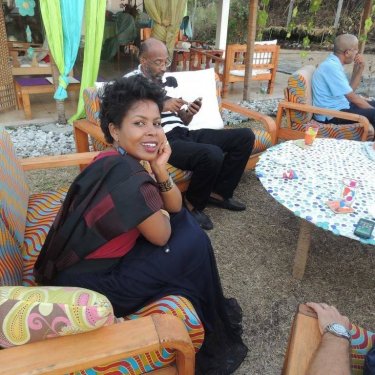Comorian journalist threatened by interior minister

Reporters Without Borders (RSF) condemns an unprecedented series of press freedom violations in recent weeks in Comoros, including a threat by the interior minister to prosecute a journalist over her coverage of a referendum on controversial constitutional changes that was held on 30 July.
The media in this Indian Ocean archipelago now speak of the “Faïza affair” when referring to interior minister Mohamed Daoudou’s threat, in an interview on 30 July, to prosecute Faïza Soulé Youssouf, a reporter with the leading state-owned daily Al-Watwan, for giving a “very bad image of the country” in her referendum coverage.
In an article for the French daily Le Monde three days before the referendum, Youssouf reported the various criticisms of the constitutional amendments that had been voiced during the campaign. They allow President Azali Assoumani to run for another term and define the Shafi’i form of Sunni Islam as the only religion that is part of the country’s national identity.
Daoudou also condemned Youssouf’s live coverage of a physical attack on a gendarme in a polling station in the capital, Moroni, on the day of referendum. Her accreditation for covering the referendum was withdrawn a few hours later.
“We call on the interior minister to end this offensive against a journalist who has just done her job, and to do what is necessary to halt the unprecedented decline in press freedom in Comoros,” said Arnaud Froger, the head of RSF’s Africa desk. “Until now, Comoros has been well regarded in the region and in Africa, but now its image and the freedom to inform are at stake.”
When reached by RSF, the interior minister said: “The referendum context did not allow me to refer this to the media regulatory body in time. My duty is to maintain peace and security, not defend a journalist who mixes her profession with her political opinions.”
Around 20 journalists gathered on Moroni’s Independence Square on 6 August in a show of support for Youssouf, and several have set up a committee to defend press freedom. The Francophone Press Union (UPF) has also issued statement voicing concern about the “threats” and “harassment” to which the country’s journalists are being subjected.
When the gendarme’s alleged attackers were brought before a judge in Moroni yesterday, HaYba FM reporter Abderemane Ahmed Ibrahim was slapped by a gendarme for photographing their arrival at the court house.
Al-Watan director-general Ahmed Ali Amir was fired by presidential decree on 12 July, less than three weeks before the referendum and shortly after he published an editorial in which he said he thought that it was vital that his “public service media outlet” should allow a “fruitful debate” about the constitutional amendments. “The closer we came to referendum day, the less the authorities tolerated any criticism,” Ali said when reached by RSF.
Comoros is ranked 49th out of 180 countries in RSF's 2018 World Press Freedom Index.


